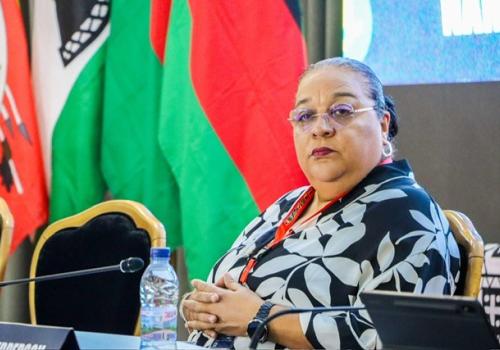
SADC Ministers of Labour called to promote decent work in the region

By Michel Haoses.
The SADC Ministers of Employment and Labour and Social Partners called on intensified action to promote decent work in the region at their annual meeting which took place in Lubango, Angola from 27 to 28 March.
The meeting was attended by 13 member states including Namibia, representatives from the SADC Private Sector Forum(SPSF), Southern Africa Trade Union Coordination Council (SATUCC), representatives of the International Labour Organisation (ILO), and International Organisation for Migration (IOM)
At the meeting Minister of Public Administration, Labour and Social Security of Angola, Hon. Teresa Rodrigues Dias, in her opening implored member states to intensify efforts to enhance access to employment and promote sustainable enterprises and productivity.
She also added that member states needed to strengthen labour market governance, increase access to social security and enhance tripartism and social dialogue among others.
Dias also reaffirmed SADC’s commitment to achieving its objectives of economic growth and socio-economic development for the benefit of all citizens in the region, especially women and persons with disabilities.
SADC Executive Secretary, Elias Mpedi Magosi who was also in attendance highlighted how high unemployment and underemployment pose a challenge to development in many countries. He called upon member states to prioritise practical actions and collaborative strategies to address these concerns.
Additionally, Magosi called upon the SADC Council of Ministers for the implementation of pro-employment macroeconomic and sectoral policies geared toward economic structural transformation, emphasising the need to enhance technical capacities for implementation at the country level.
He further stressed the importance of investing in youth so they realise their potential and advocated for measures to eradicate child labour by ensuring each child has access to education and protecting children from hazardous work.
Although child labour is still practised across the region Magosi welcomed the progress made in the SADC Code of Conduct on Child Labour, through National Action Plans and dedicated Child labour units.
Some key notes taken at the meeting amongst others were the endorsement of Concept Note on a Capacity Building Programme (CBP) on Pro-employment macroeconomic policies and strategies for member states, a review of the implementation status of the SADC Code of Conduct on Child Labour noting that impact on the ground remained constrained with average child labour rates ranging from 5% to 32% based on recent statistics.
Finally, they called upon member states to domesticate the SADC Labour Migration action plan (2020 to 2025) through the development and implementation of national labour migration policies or strategies and the approval of the Model Framework for Autonomous Labour Dispute Resolution Systems in SADC, which seeks to guide the establishment and maintenance of systems that are autonomous, accessible, efficient and subject to tripartite consultation in line with the SADC Charter of Fundamental Social rights.
 Teresa Rodrigues Dias, Minister of Public Administration, Labour and Social Security of Angola.
Teresa Rodrigues Dias, Minister of Public Administration, Labour and Social Security of Angola.












































